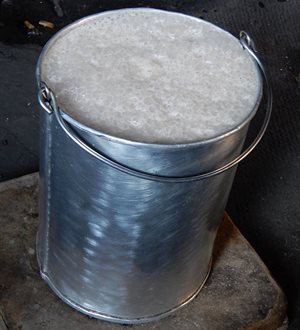South Africa must turn to safer packaging for beer

South Africans were in mourning across the country, but some not for long. Instead of going without alcohol, several people decided to make their own, with some choosing to sell their homebrew.
The dangers of homebrewing was recently called out by MEC Faith Mazibuko in a scathing social media post after Gauteng community safety officials found that traditional beer being sold at an informal settlement was infested with maggots. Even more recently, a man from Brakpan passed away and his father was placed in ICU after drinking homebrewed alcohol they had purchased in Boksburg.
Safe sorghum beer has a long and rich history in South Africa. Tribes throughout Africa brewed beer long before European settlers brought their brewing techniques to the continent and tribes carried the art of brewing sorghum with them as they migrated south. Beer brewing is steeped in traditions that are centuries old and go hand-in-hand with ceremonial and cultural occasions and gatherings. Protecting such a key part of the South African ethos must become a priority for the country.
With the ban on the sale of alcohol lifted the sale of unsafe homebrewed spirits will likely decrease. But, as clear and opaque beer comes back onto the shelves there are still safety concerns that need to be addressed in the opaque bulk beer market.
The dangers and illness we have seen in homemade concoctions during Covid lockdown are indicative of what often occurs in the bulk sorghum beer market as well.
Commercial beer packaging needs an update
Because the packaging of bulk sorghum beer in plastic drums and barrels can be easily opened and resealed, it is not tamper-proof and continues to be vulnerable to abuse.
Unscrupulous traders often open the beer and water it down, or add dangerous concoctions to it such as other alcohol, methylated spirits and in severe cases even battery acid to give it a “kick”. This means that people often get sick, and sometimes even die. Some traders also reuse the beer drums and under-declare how much beer they are really selling, thereby dodging excise duties.
So, what’s the solution? How do we ensure that beer isn’t tampered with and guarantee the safety of South Africans who consume it?
Conical cartons are tamper-evident. They are not open to the same vulnerabilities as plastic and drum packaging. Once cartons are opened, they cannot be resealed again.
This gives both producers and consumers the ability to recognise if any individual package has been tampered with and thus increase its safety. Consumers can trust that the beer inside a sealed carton is the same great quality that left the brewery, and nothing else.
Creating a more eco-friendly production environment
A study analysed by the Institute of Food Technologists found that primary beer packaging exerted the greatest environmental impact. But, conical cartons offer more environmental advantages when compared to alternative forms of packaging.
Sustainability is key for all businesses – to create and maintain a safe environment for all humanity.
If the simple act of changing its packaging can ensure that South Africans are able to partake in this centuries-old African tradition safely, then this is an option that must be pursued.











